State Visit to Kenya
Published
This week, The King and Queen are undertaking a State Visit to Kenya to celebrate the warm relationship between the two countries and the strong and dynamic partnership they continue to forge.
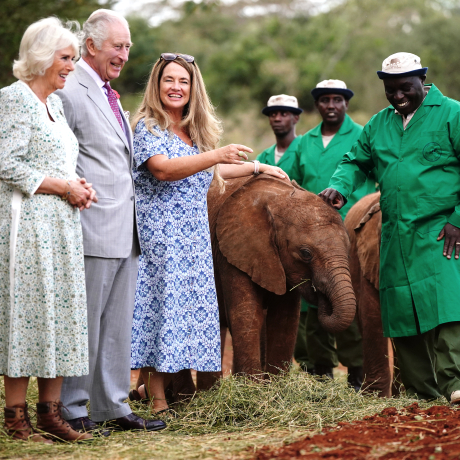
State Visit to Kenya
The visit is at the invitation of President Ruto and comes as Kenya prepares to celebrate 60 years of independence. His Majesty’s first visit to a Commonwealth nation as King is therefore to the country in which Queen Elizabeth II’s reign began, having acceded to the throne in Kenya in February 1952.
The King and Queen will visit Nairobi City County, Mombasa County and surrounding areas. Their Majesties’ programme will reflect the ways in which Kenya and the United Kingdom are working together, notably to boost mutual prosperity, tackle climate change, promote youth opportunity and employment, advance sustainable development and create a more stable and secure region.
The King and Queen’s programme will celebrate the close links between the British and Kenyan people in areas such as the creative arts, technology, enterprise, education and innovation. The visit will also acknowledge the more painful aspects of the UK and Kenya’s shared history, including the Emergency (1952-1960). His Majesty will take time during the visit to deepen his understanding of the wrongs suffered in this period by the people of Kenya.
Day 1: Nairobi
This morning, The King and Queen arrived at State House in Nairobi for a Ceremonial Welcome, where they were received by the President and First Lady of the Republic of Kenya.
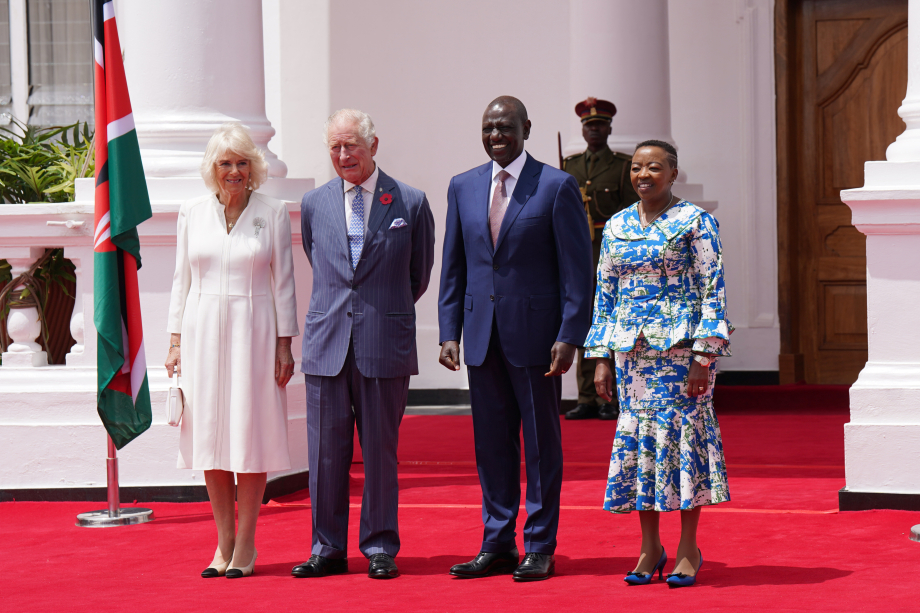
After proceeding down the red carpet, President Ruto presented the Chief of the Kenyan Defence Forces and Commanders of the Army, Air Force and Navy.
The King joined President Ruto on the dais to observe a Royal Salute and twenty-one gun salute. The Kenya Defence Force band played the UK and Kenyan National Anthems.
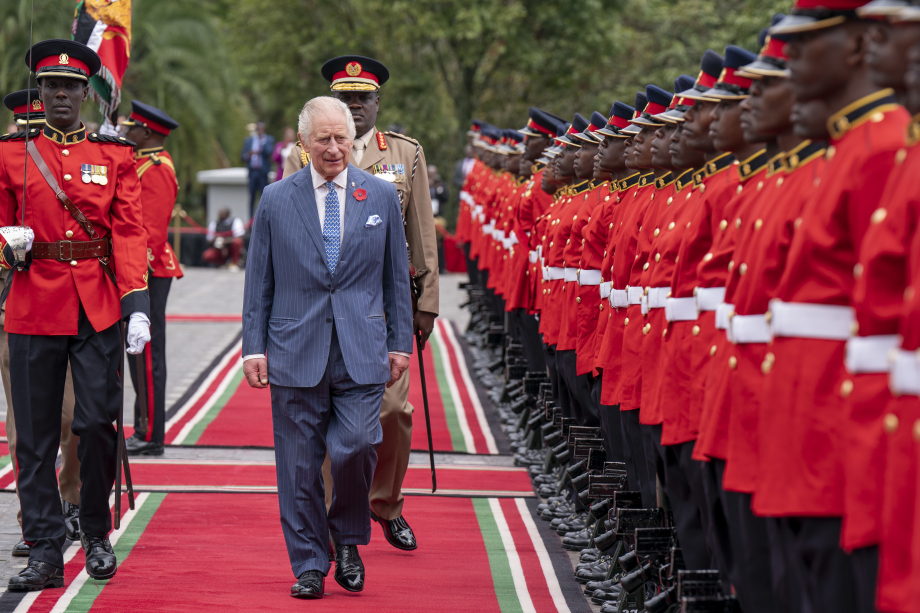
Following the ceremony, The Queen joined the First Lady for a bilateral meeting, where Her Majesty viewed a gallery of images showing the work of Mama Doing Good, which focuses on environment and climate action, the economic empowerment of women, and faith diplomacy.
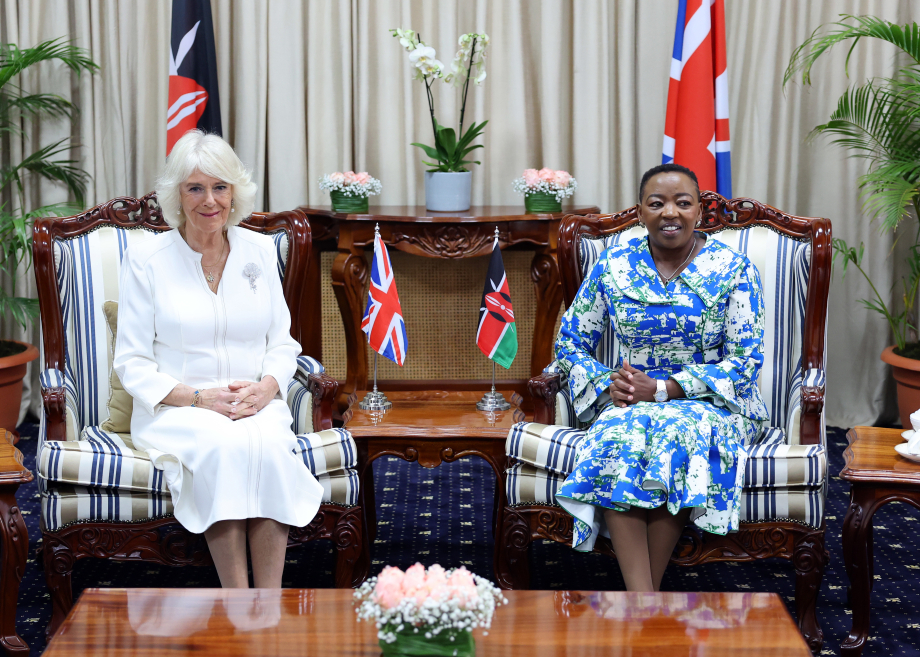
The First Lady created Mama Doing Good in 1997, and founded the Joyful Women Organisation, Mama Doing Good’s first programme, in 2009. The five programmes Mama Doing Good runs are: Joyful Women, which promotes women’s economic empowerment and financial inclusion; Carakana, which is a social enterprise facilitating the preservation of indigenous skills through the production of handmade items; Mama Cycling, which promotes healthy communities through cycling; Mama Feeding, which is a non-profit organisation promoting access to education for vulnerable primary school children through feeding programmes; and The RearGuard; a movement which upholds family and national values for social transformation and community cohesion.
At Uhuru Gardens, The King and Queen toured a new museum dedicated to Kenya’s history. The King, with President Ruto, layed a wreath at the Tomb of the Unknown Warrior and viewed the Mũgomo Tree at the site of the declaration of Kenya’s independence in 1963.
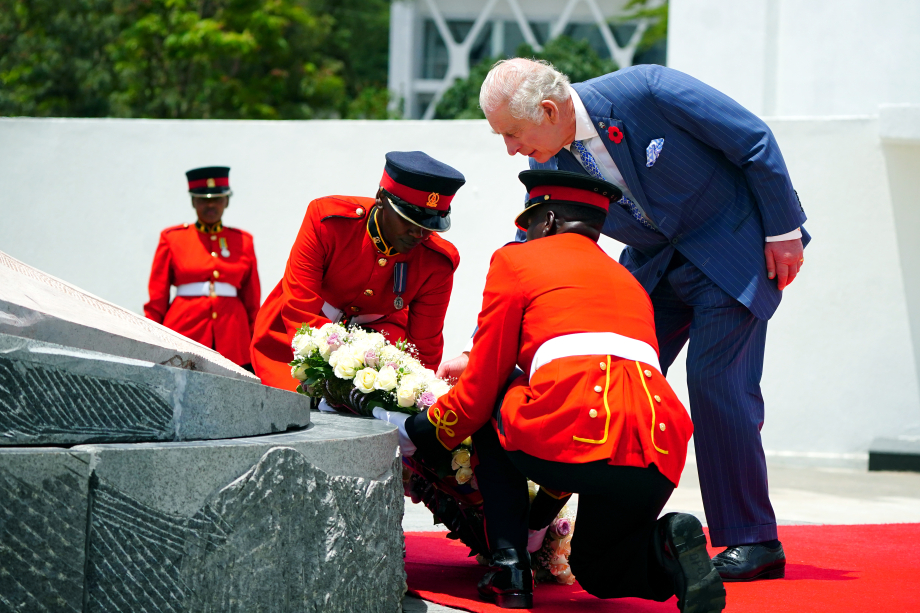
Uhuru Gardens National Monument and Museum is the hallowed site where Kenya’s founding fathers chose to celebrate Independence day on 12th December 1963, and the country’s republic status in 1964. The Mugumo tree at Uhuru Gardens was planted in the exact location where the Union Jack was removed and the Flag of Kenya was raised during the Independence Day celebrations, attended by Kenya’s first President, Jomo Kenyatta and Prince Philip, Duke of Edinburgh.
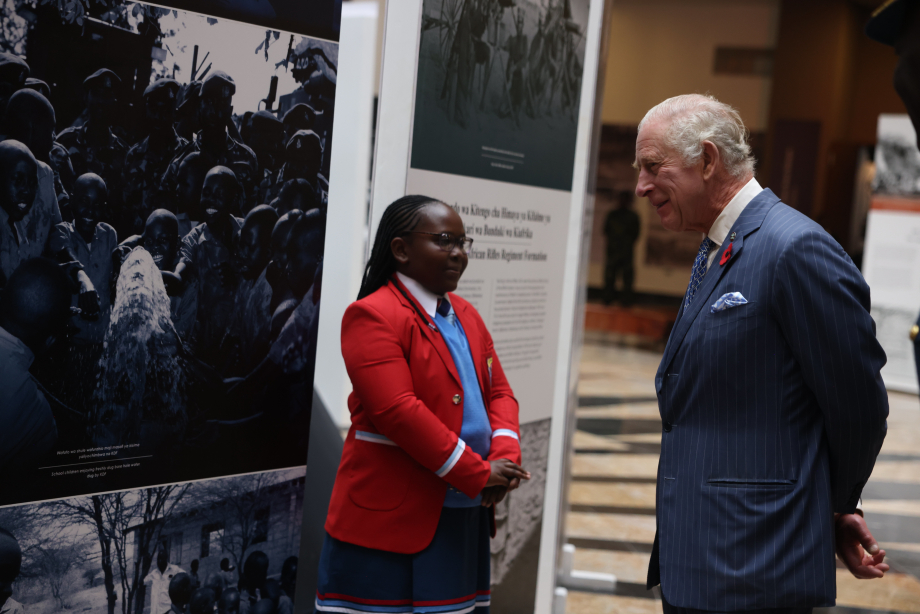
Today, Uhuru Gardens stands as a space for celebration of and reflection on Kenya’s history and achievements. From above, the museum is shaped like the national coat of arms, featuring a traditional African shield and two crossed spears. The museum is expected to open to the general public in 2024 and it is hoped it will attract approximately 2 million visitors annually.
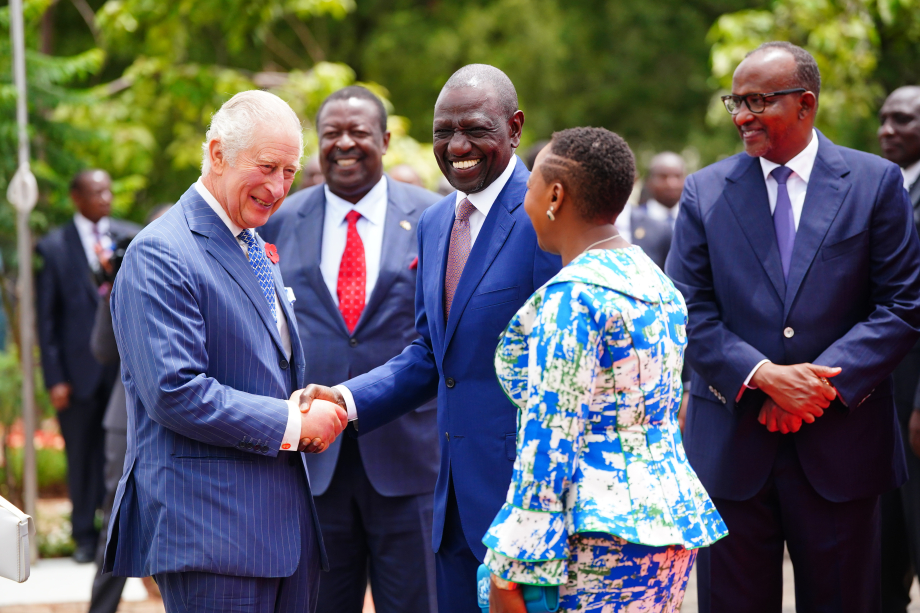
Following this, The King met young people taking part in a Prince’s Trust International (PTI) Enterprise Challenge, during which they played a business simulation game before being encouraged to generate their own entrepreneurial ideas, with a focus on sustainable business.
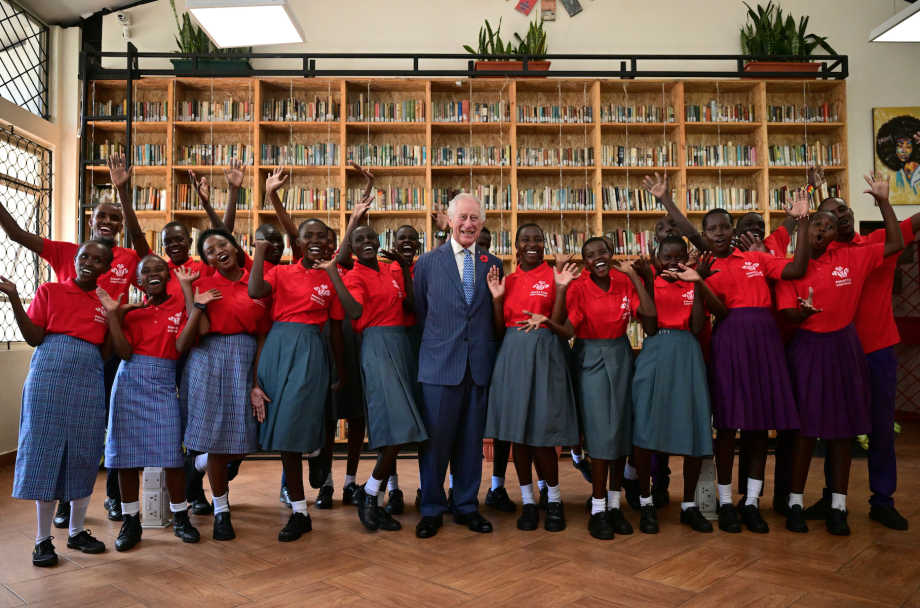
The Prince’s Trust International’s programmes in Kenya focus on helping young people to develop business acumen. Delivered in partnership with local organisations, the programmes have operated in Kenya since 2019. It has directly supported the development of over 3,200 young Kenyans through its Enterprise Challenge programme with the Asante Africa Foundation and a bespoke consultancy project with Shujaaz.
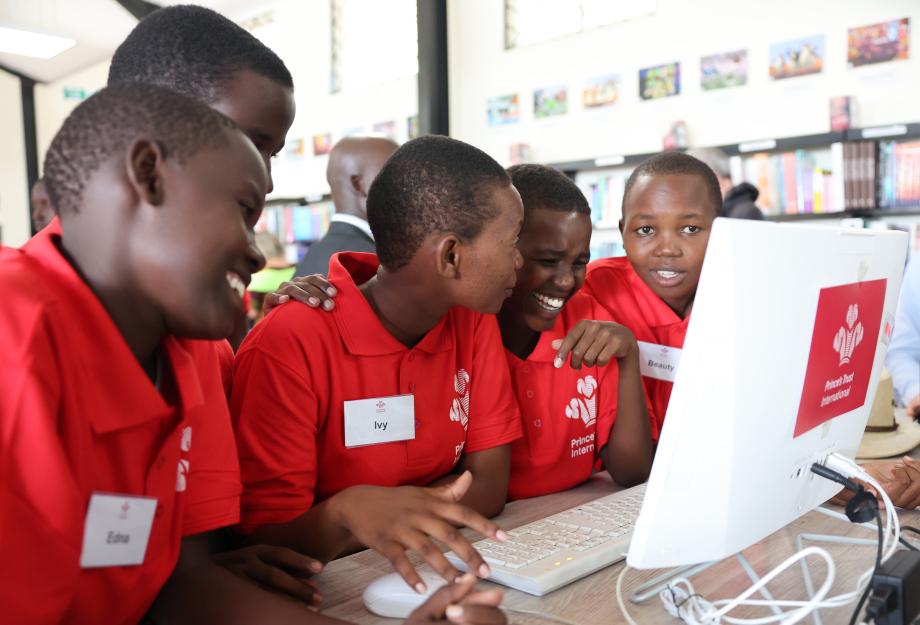
Meanwhile, at Eastlands Library, The Queen met the founders of Book Bunk, a Kenyan charity that restores public libraries into “Palaces for People”.
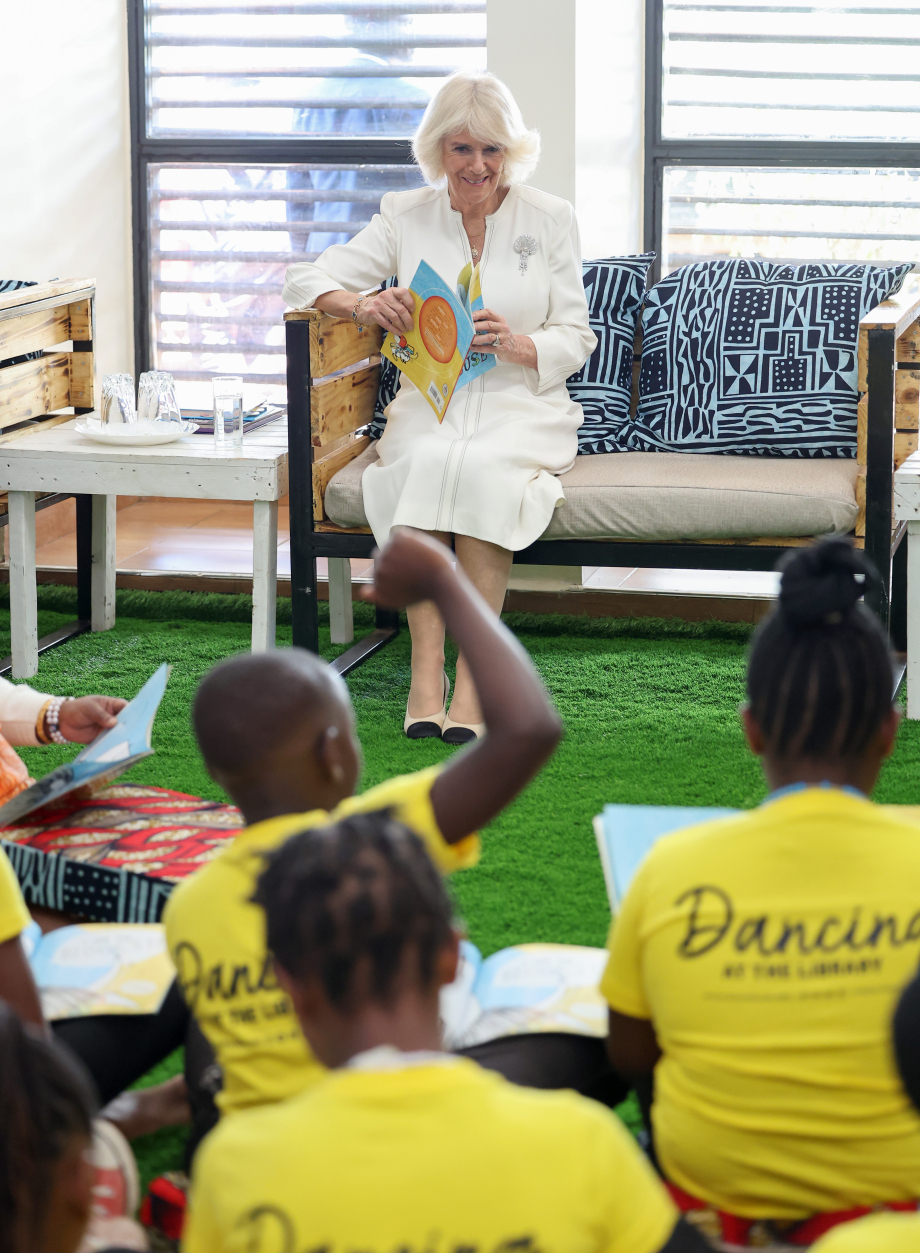
The Queen heard about the dance, music and photography programmes run at the Library and met representatives from some of her own literary patronages with ties to Kenya.
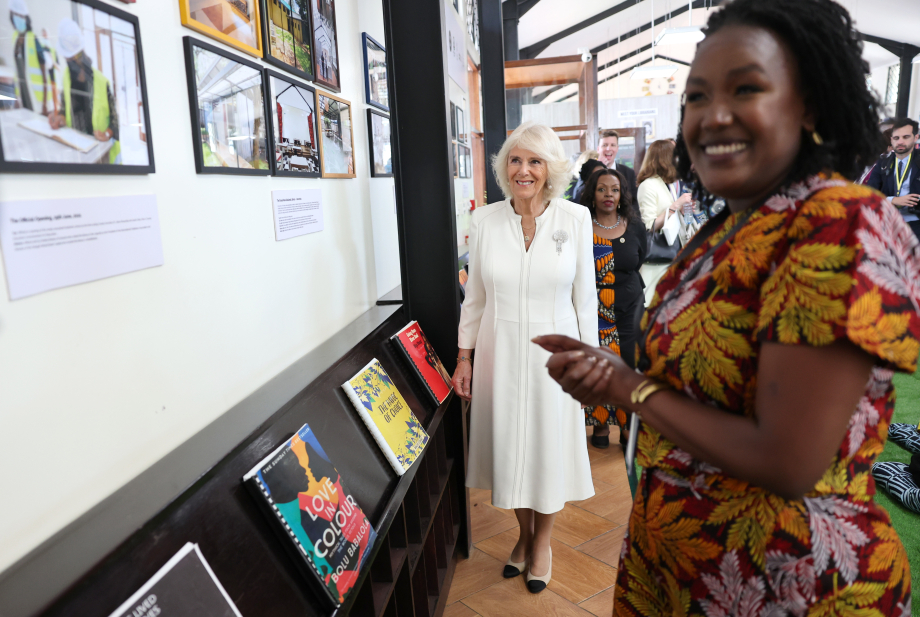
Later, The King visited City Shamba, an innovative urban farming project which demonstrates how food production can be maximised in densely populated urban spaces through regenerative agricultural practice and the use of recycled materials. The project serves as a model farm and information centre for the local community, and provides food to the hospital.
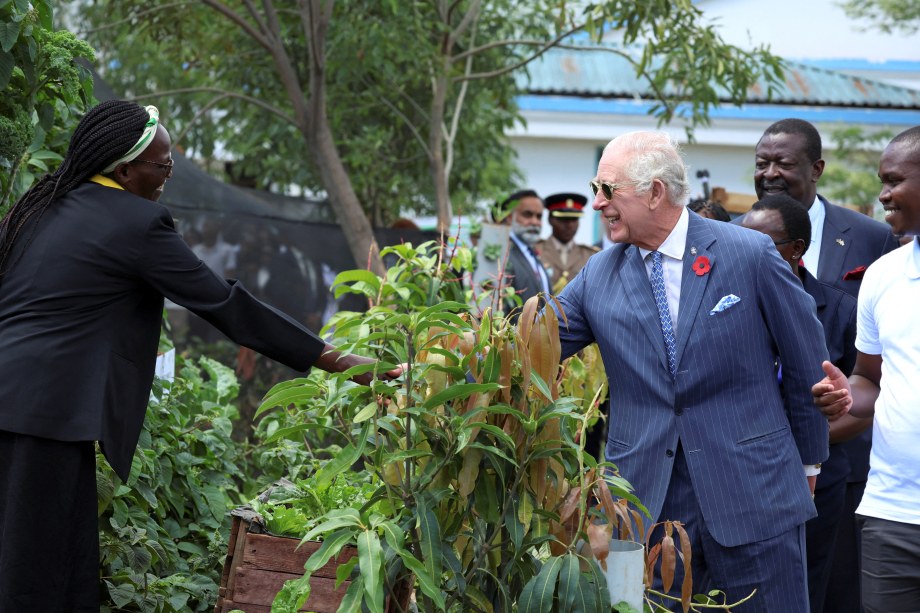
His Majesty walked through the open-air garden, and heard about the different vegetable farming and organic pest control methods employed, before visiting the aquaponics greenhouse, and the catfish and tilapia fish ponds. The King helped to harvest some fresh crops, which will be delivered to the hospital kitchen.
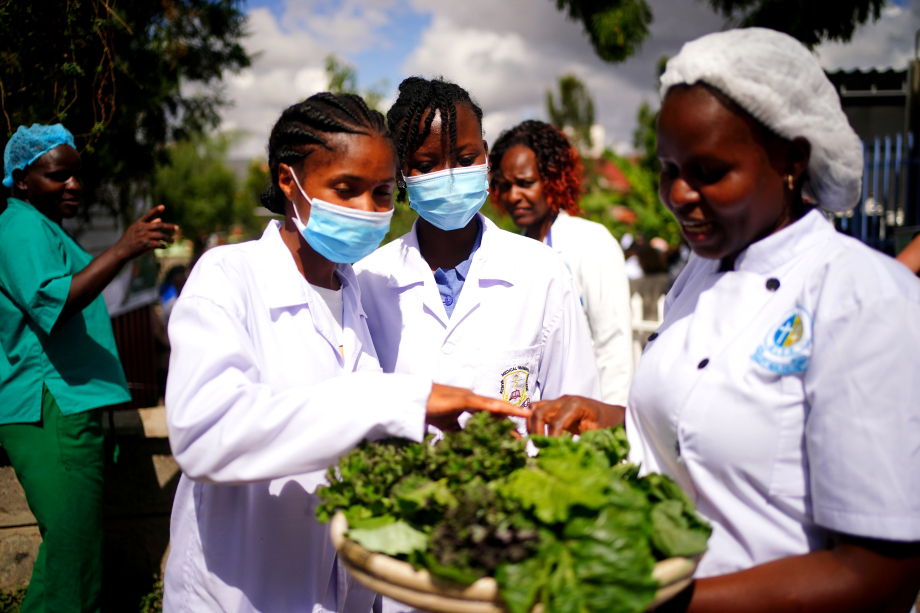
The King also attended a Tech and Innovation showcase at Nairobi Garages. Dubbed the ‘Silicon Savannah’, Kenya is currently the third largest start up eco-system in Africa, after South Africa and Nigeria, and His Majesty met young entrepreneurs who are at the forefront of the country’s thriving technology sector.
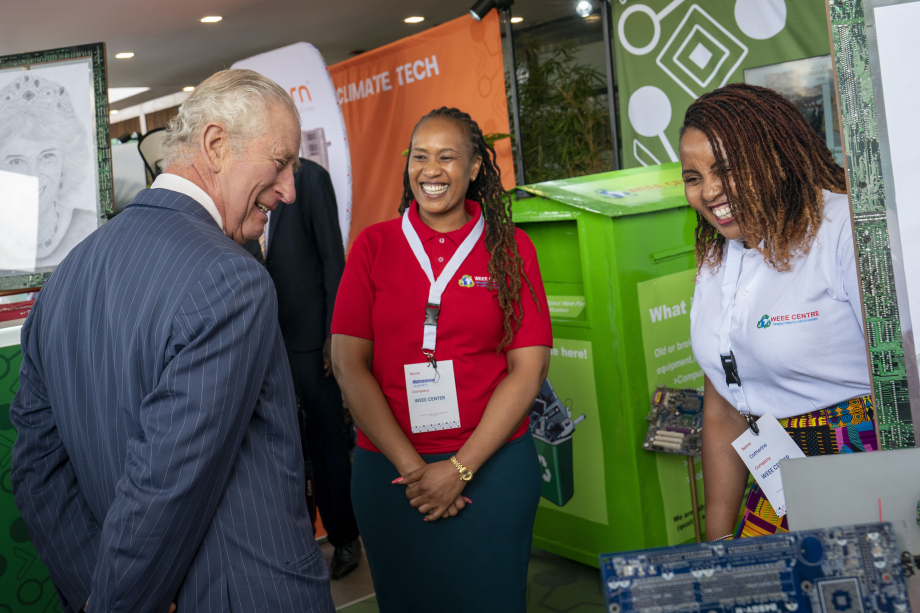
Nairobi Garage is Africa's largest coworking space, which is available to more than 500 startups in five locations across Nairobi.
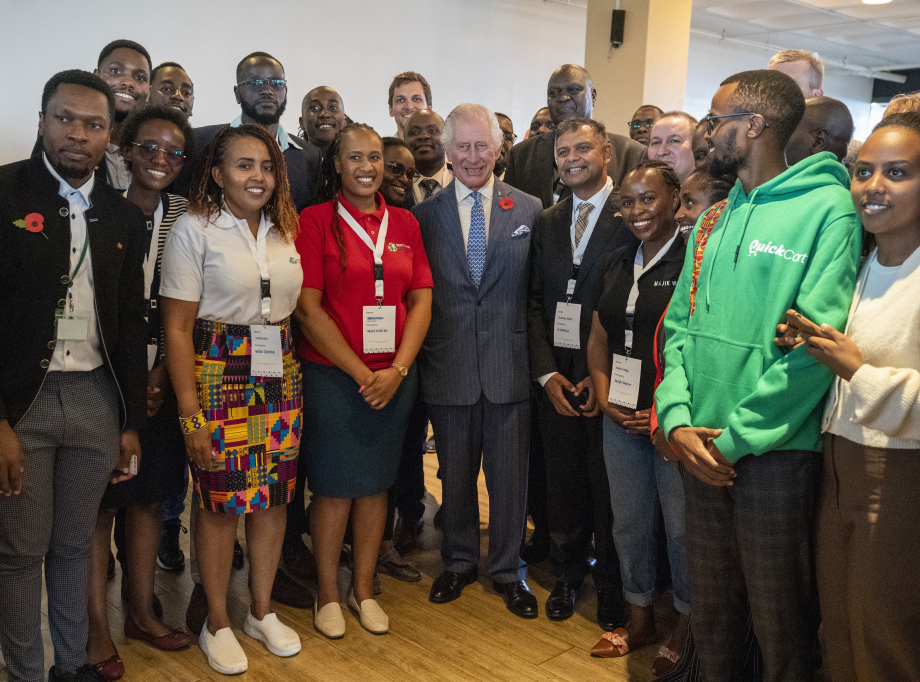
This evening, The King and Queen attended a State Banquet hosted by President Ruto at State House, along with distinguished guests from Kenya and the United Kingdom.
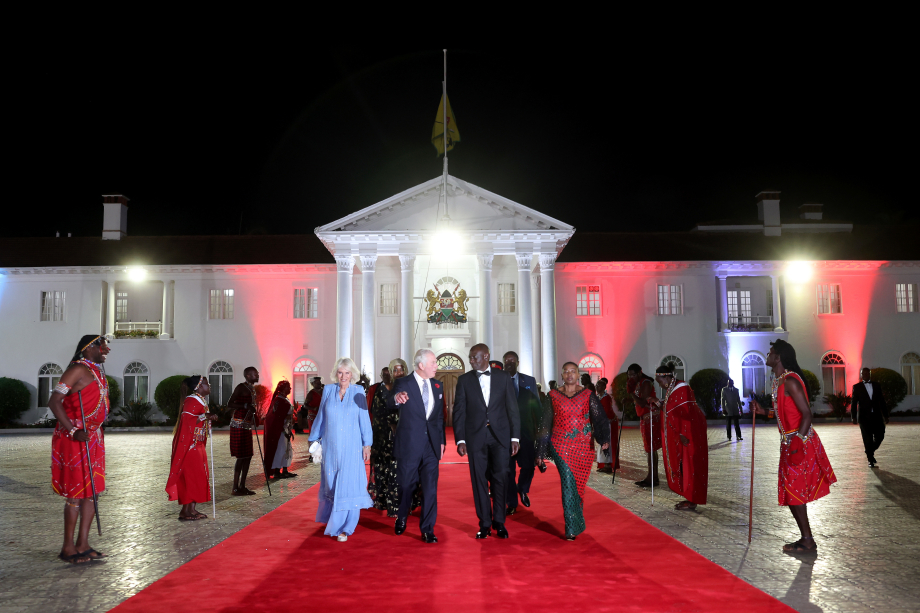
Addressing guests, His Majesty said:
It means a great deal to my wife and myself that, in our Coronation year, our first State Visit to a Commonwealth country should bring us here to Kenya. We both take considerable pride in renewing the ties between the United Kingdom and Kenya, a country that has long held such special meaning for my family.
Najiskia kama niko nyumbani
"It is well known, I think, that my dear Mother, The late Queen, had a particular affection for Kenya and the Kenyan people. She arrived here in nineteen fifty-two a Princess, but left as Queen. It is extremely moving to read her diary from that visit, in which she wrote that she did not want to miss a moment of Kenya’s extraordinary landscapes. I really cannot thank you enough for the support Kenya gave her through that difficult time."
Read The King's speech in full here.
Day 2: Nairobi
The King and Queen began their second day in Nairobi at the Commonwealth War Graves Commission (CWGC) cemetery, joining British and Kenyan military personnel in an act of Remembrance, before hearing about the Commission’s work to ensure all those who supported Britain in both World Wars are commemorated.
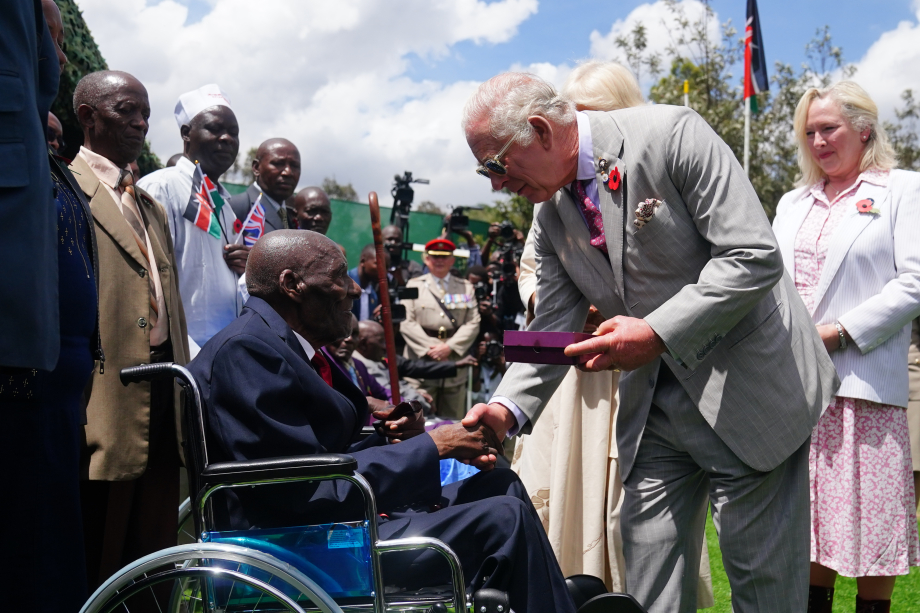
The cemetery is situated in an area associated with the Carrier Corps of World War I and, as such, became known as ‘Kariokor’. Most of the Kariokor casualties were not individually commemorated, and their contribution was largely overlooked. During the visit, Their Majesties heard more about CWGC’s ‘Non-Commemorated Project’, which addresses the historical inequalities in commemorating those killed during the First and Second World Wars.
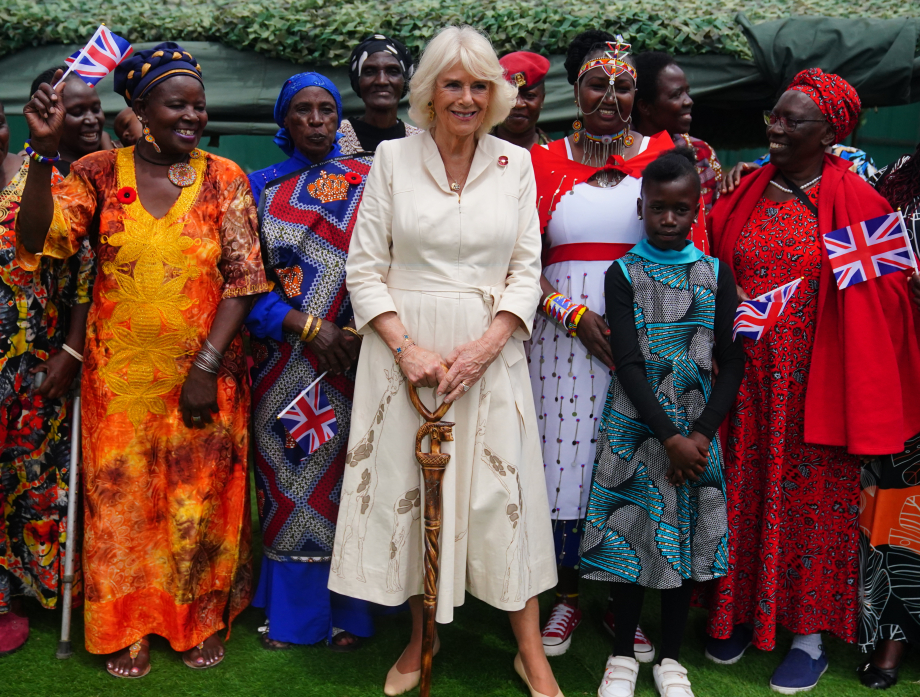
As Head of the Commonwealth, The King later visited the United Nations Office Nairobi to learn more about the work being done by the United Nations Environment Programme (UNEP) and the United Nations Human Settlement Programme (UN Habitat).
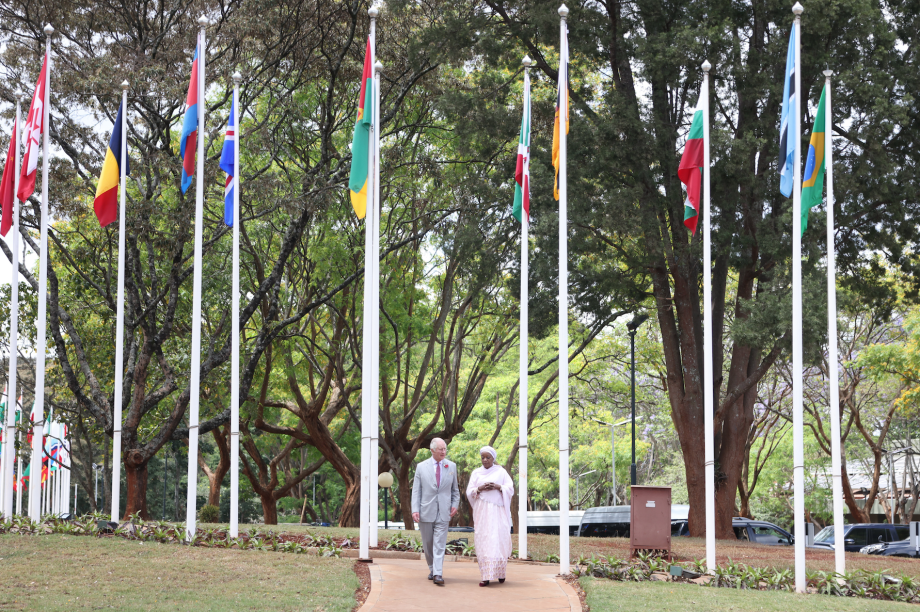
His Majesty said:
I cannot tell you how enormously touched I am that you have invited me to be with you today at the centre of global efforts to protect our planet for future generations. As you might know, I have long cared deeply about this increasingly urgent mission, and I am moved by your very warm welcome and kind words.
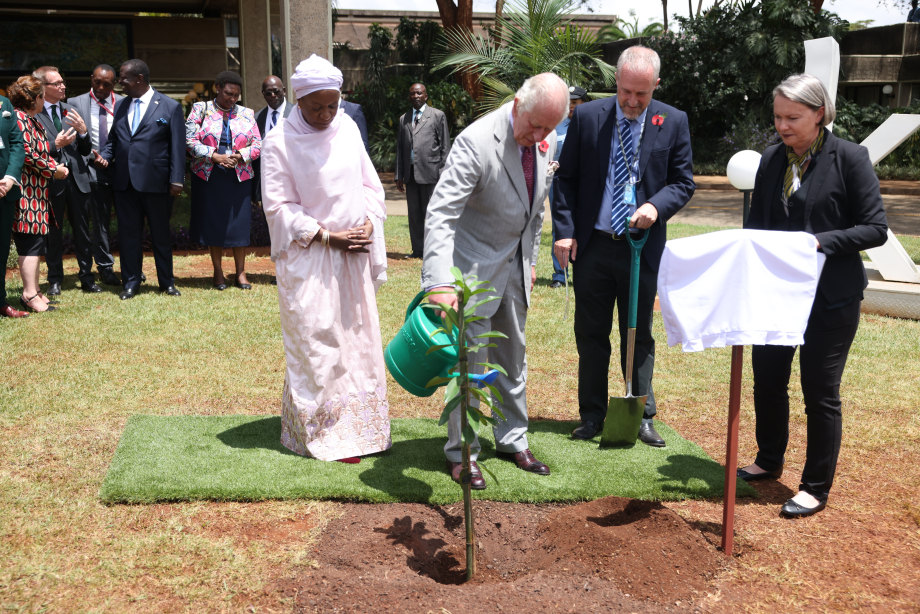
Meanwhile, The Queen visited Brooke Donkey Sanctuary, of which she is President, to hear more about how the charity is working with the Kenya Society for the Protection and Care of Animals to rescue donkeys at risk, and promote their welfare.
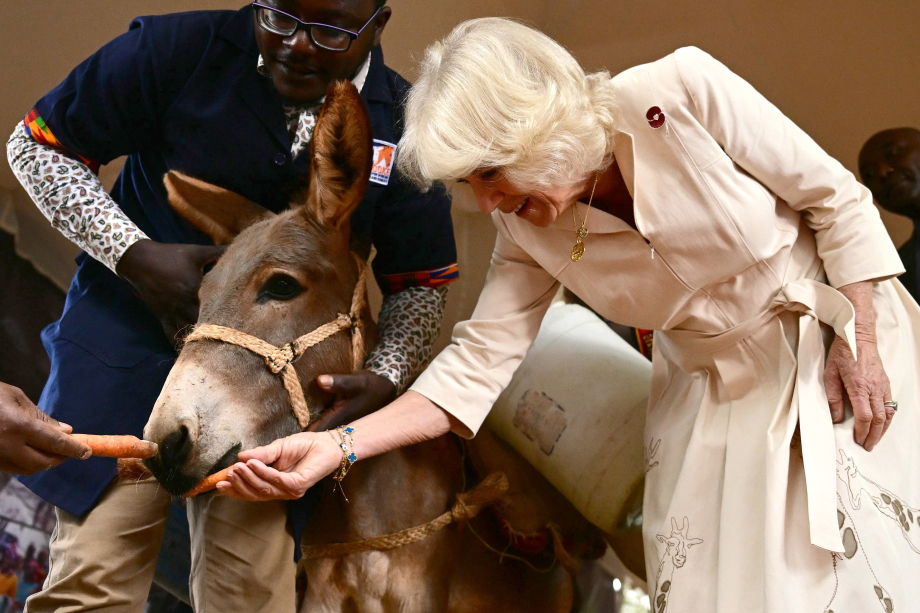
Her Majesty saw an ongoing clinic session with two vets, a farrier and handlers. The clinic provides vaccinations, dental and hoof care and cart and harness training.
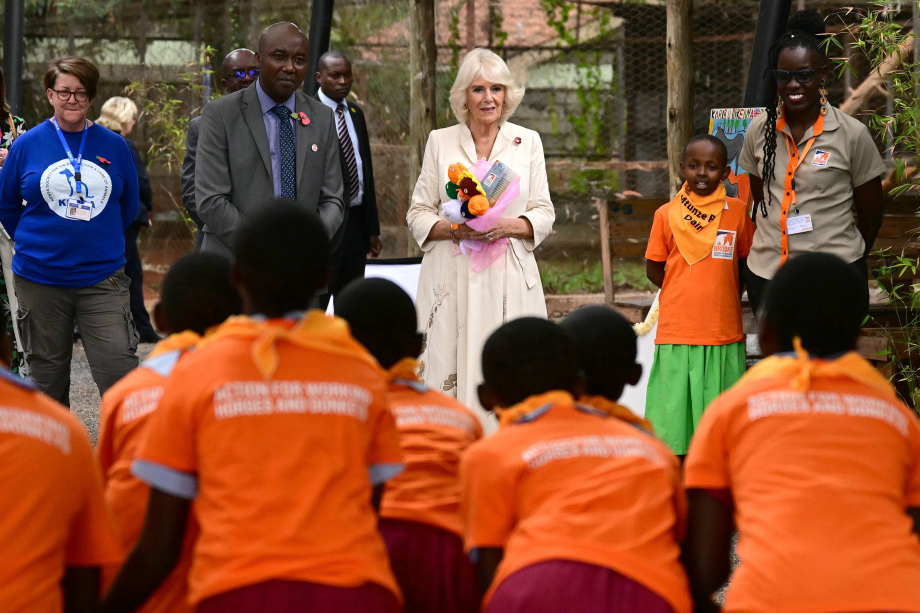
The Queen also met a group of children who are members of Donkey Care Clubs at school.
At Karura Forest, The King discussed the crucial role of green spaces and forests in sustainable cities. The urban forest is situated north of the city and was gazetted as a forest reserve by the British colonial government in 1932. Set aside mainly as a source of timber and firewood for the new Uganda Railway, three quarters of the indigenous forest was felled and replanted with exotic species such as Cypress and Eucalyptus.
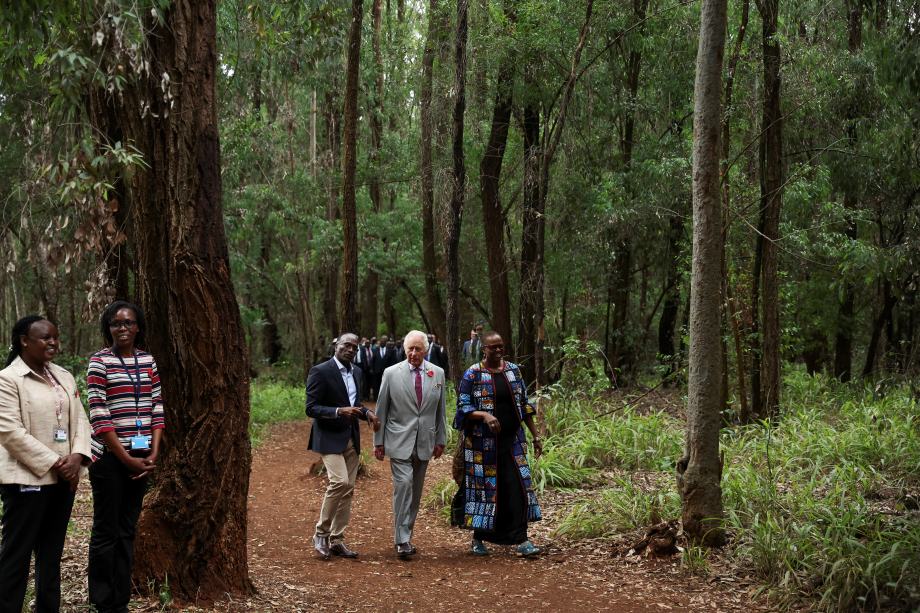
During the visit, His Majesty spent time with Wanjira Mathai, the daughter of Professor Wangari Maathai, who ran a campaign to save Karura Forest and became the first African woman to win the Nobel Peace Prize.
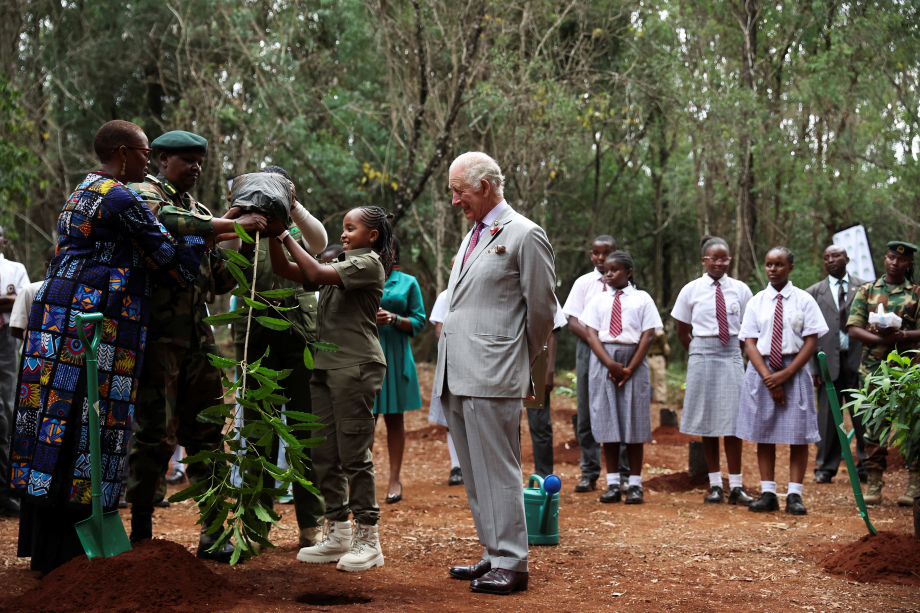
The King also met 10 year old environmental campaigner Karen Kimani, who earlier this year wrote to Buckingham Palace to ask His Majesty to plant a tree with her. Together, they planted an Elgon Teak - the latest addition to the 10,000+ trees that Karen has planted.
Later, The King went to Nairobi Street Kitchen to celebrate the Kenyan cultural and creative scene. Here, His Majesty toured a pop-up exhibition of 7 booths showcasing creative products from graphic novels to sustainable fish leather bags made by young creatives including artisans, fashion designers, musicians and artists.
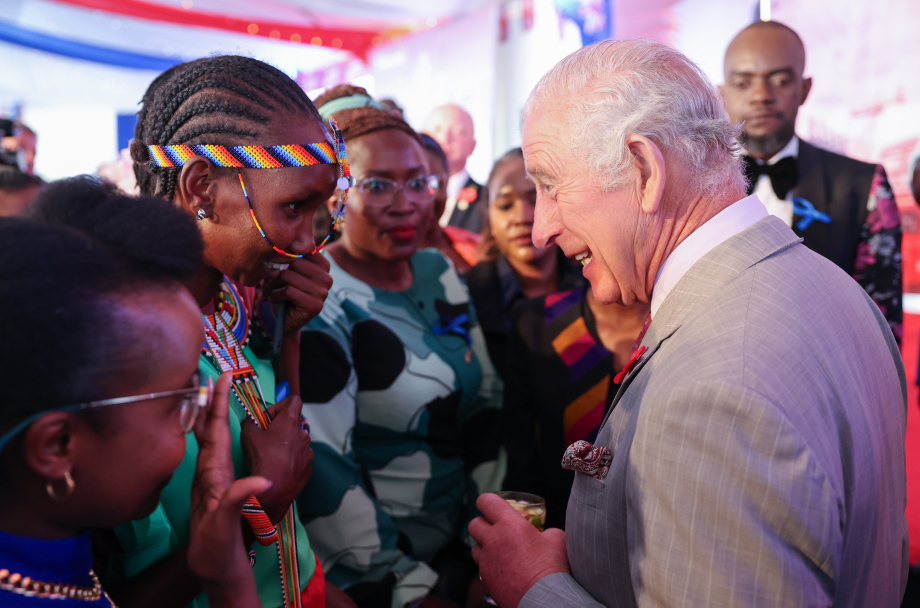
At the British High Commissioner's Residence, His Majesty also attended a reception to celebrate Kenyan Society. During the reception, The King met groups of Kenyans from multiple sectors - entrepreneurs, innovators, environmental champions, scientists, educators, sports figures, politicians, public servants and community leaders.
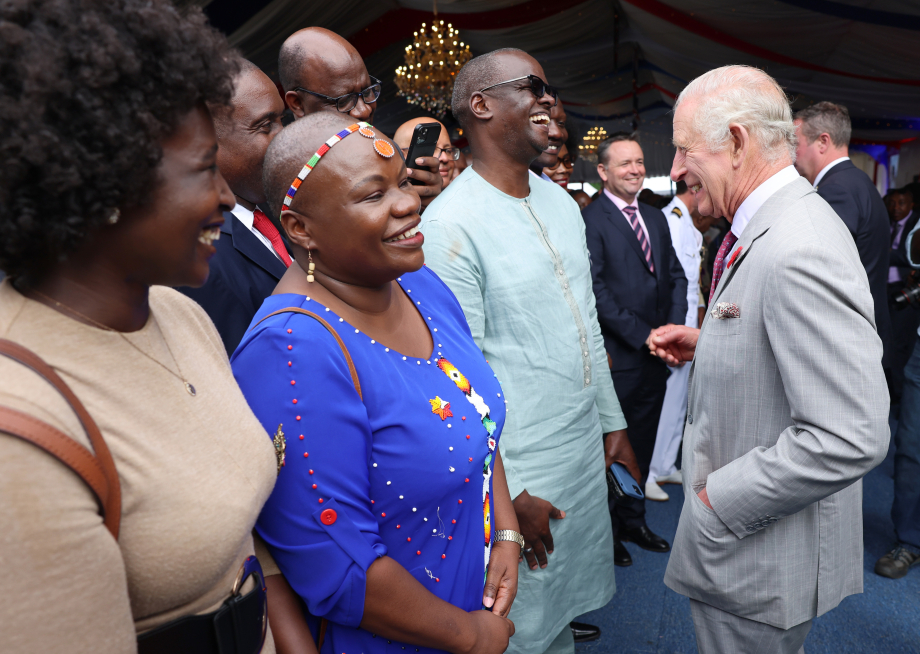
To end the day, The King and Queen were reunited at Sheldrick Wildlife Trust Elephant Orphanage. During their time here, Their Majesties saw elephants enjoying a mud-bath, while hearing about the work and contribution of the Sheldrick Wildlife Trust and the Kenyan Wildlife Service to the conservation and preservation of wildlife and protected areas across Kenya.
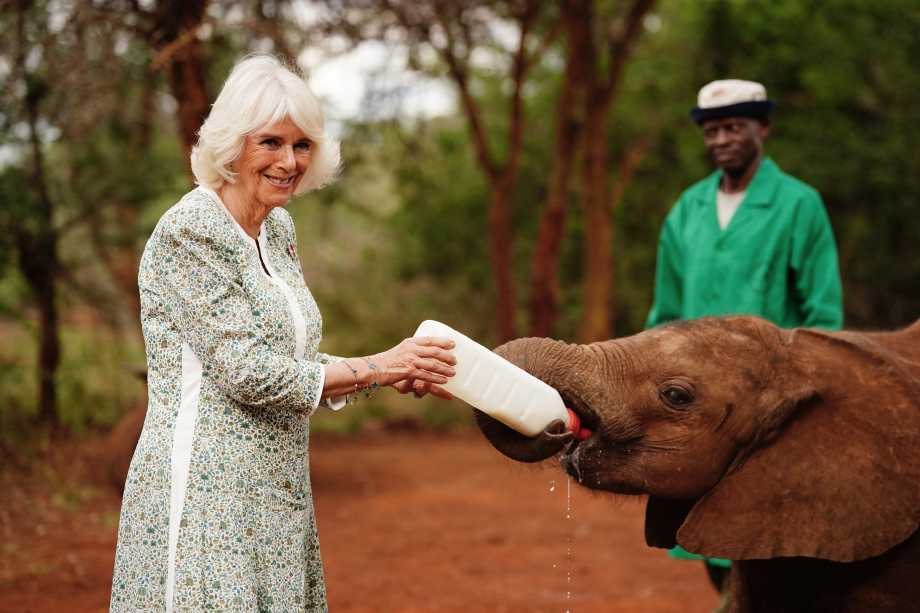
To date the Sheldrick Wildlife Trust has successfully raised 316 orphan elephants and hand-raised 17 rhinos. A further 55 baby elephants are known to have been born to elephants previously rescued by the orphanage.
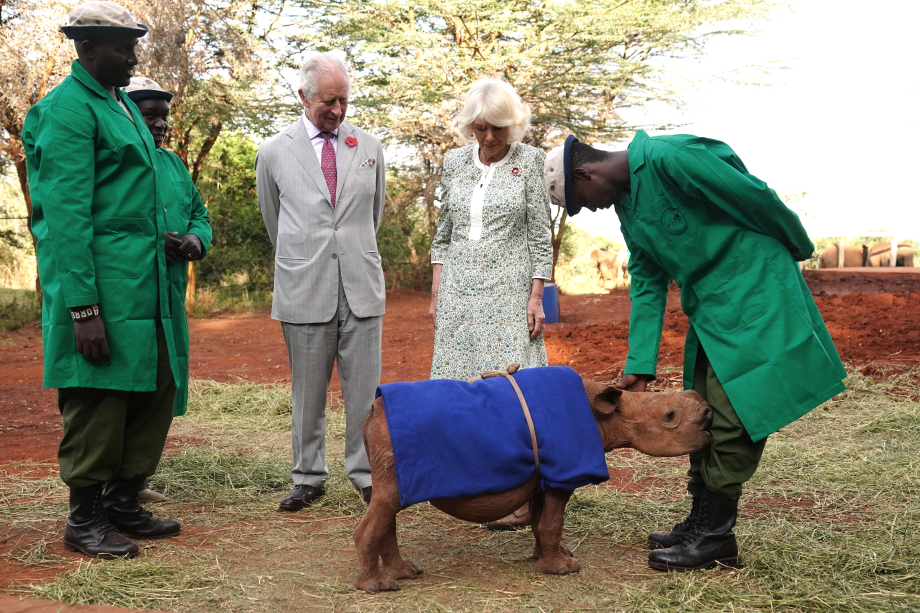
En route out of Narobi National Park, Their Majesties visited the park’s ivory burning site, an historic location where 12 tonnes of ivory were burnt by the former Kenyan President Daniel Arap Moi in 1989. Most of it was intercepted before entering the market, stored, then burnt to show Kenya’s commitment to the conservation of elephants, and zero tolerance to ivory trade.
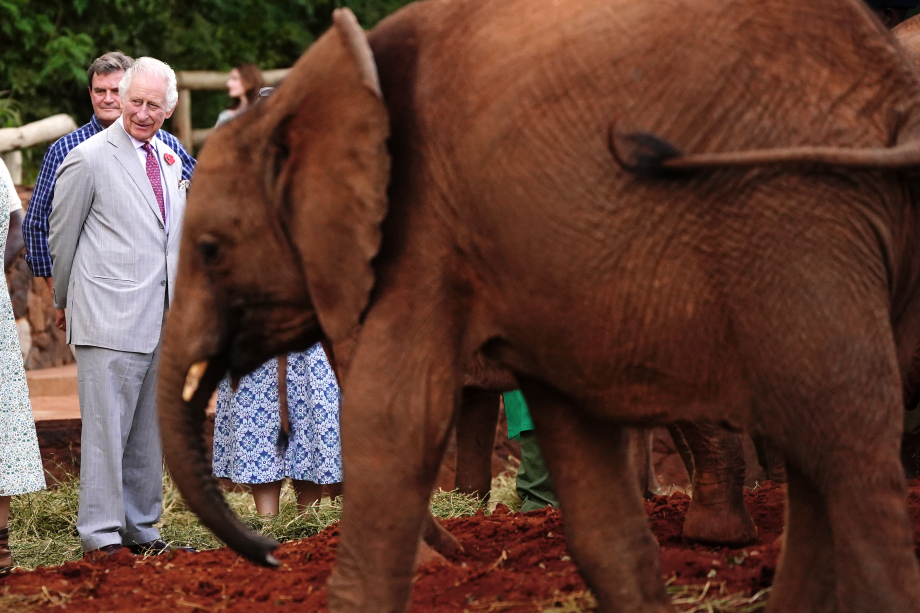
Day 3: Mombasa
The King and Queen begun their third day in Kenya at Mtongwe Naval Base, where they watched the Kenya Marines, trained by the Royal Marines, demonstrating a covert beach landing, showing defence collaboration in action.
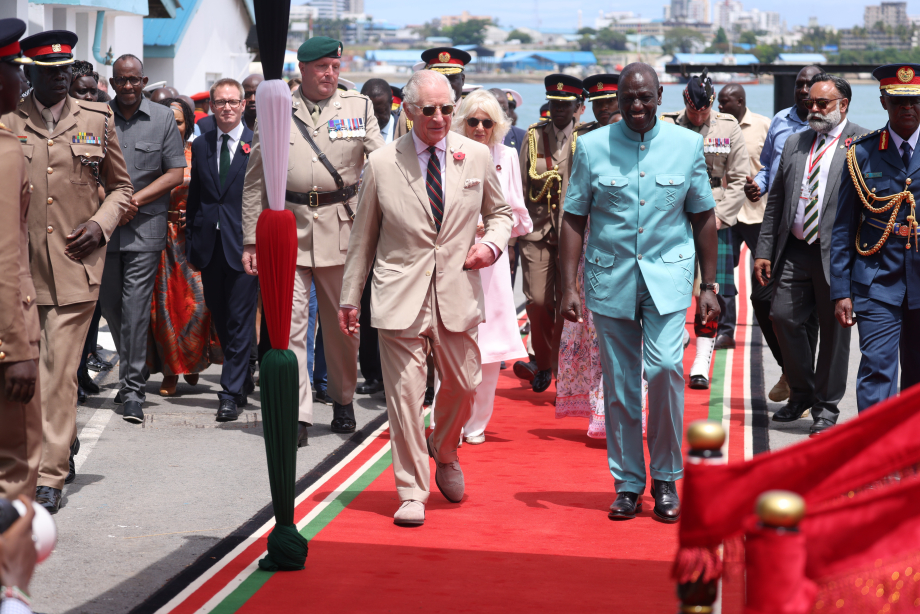
The King, who is Captain General of the Royal Marines, inspected the Guard of Honour before a march past took place.
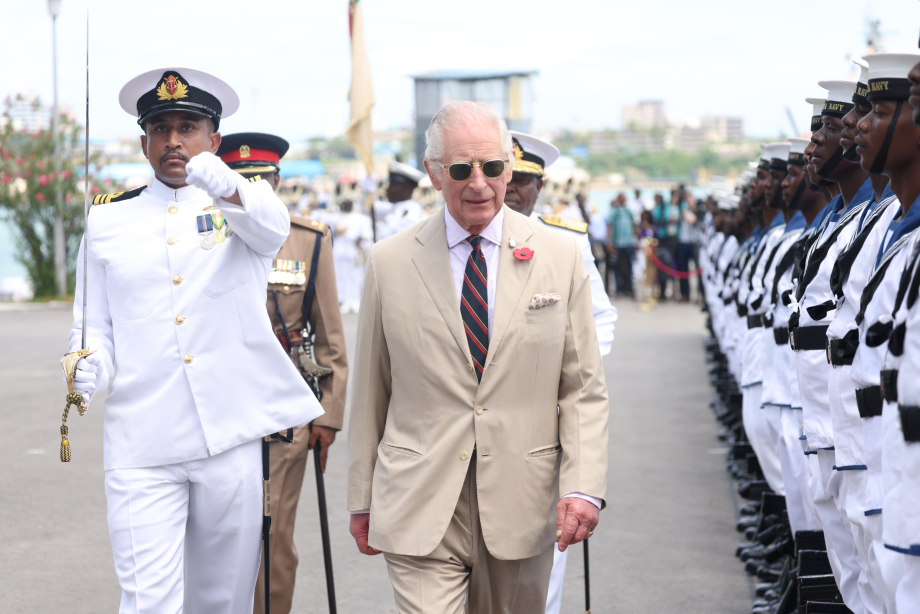
Widely acknowledged as one of the world’s elite fighting forces, the Royal Marine Commandos are the amphibious troops of the Royal Navy. As Prince of Wales, The King embarked on a career in the Royal Navy, undergoing training at the Commando Training Centre Royal Marines (CTCRM) in Lympstone, Devon, in order to qualify as a helicopter pilot. His Majesty later served alongside Royal Marines on board HMS Hermes, as part of 845 Naval Air Squadron, completing military exercises in the Western Atlantic and the West Indies.
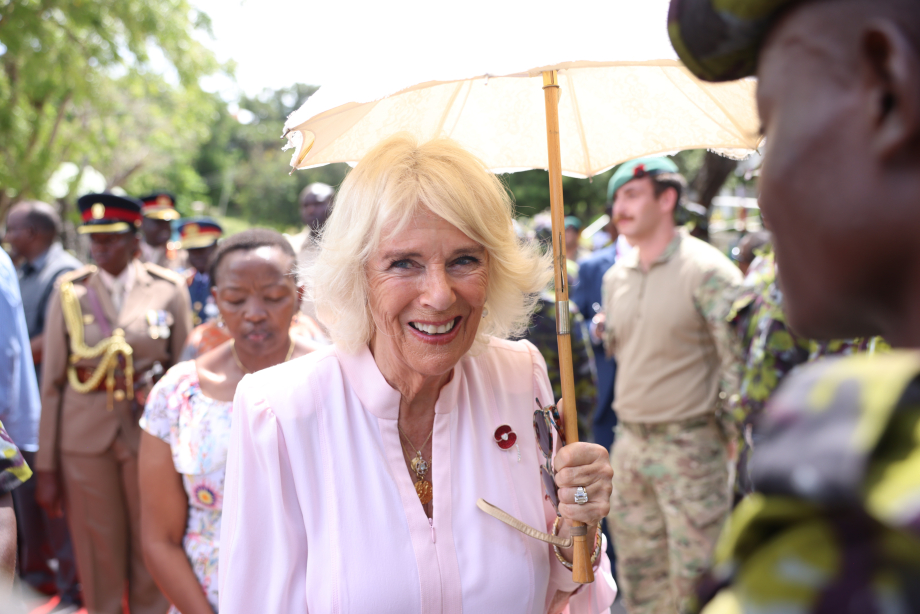
Following this, The King heard about marine conservation efforts at Nyali Beach, and the work young people are doing to support this.
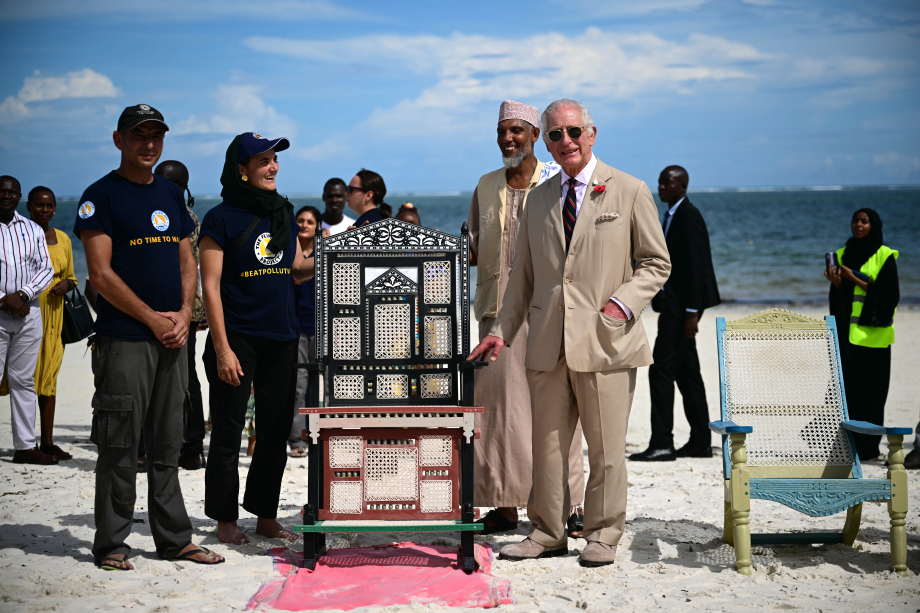
Plastic litter from the coastal cities of Mombasa and Kilifi currently affects more than 800 marine and coastal species through entanglement, ingestion, and habitat alteration.
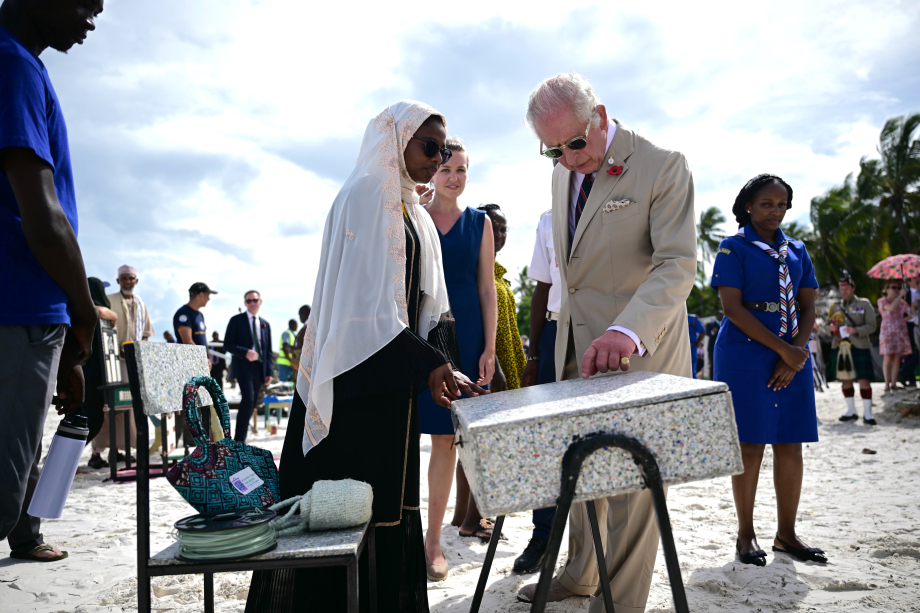
During His Majesty's time at the beach, he saw the results of a beach clean-up and visited a turtle conservation site.
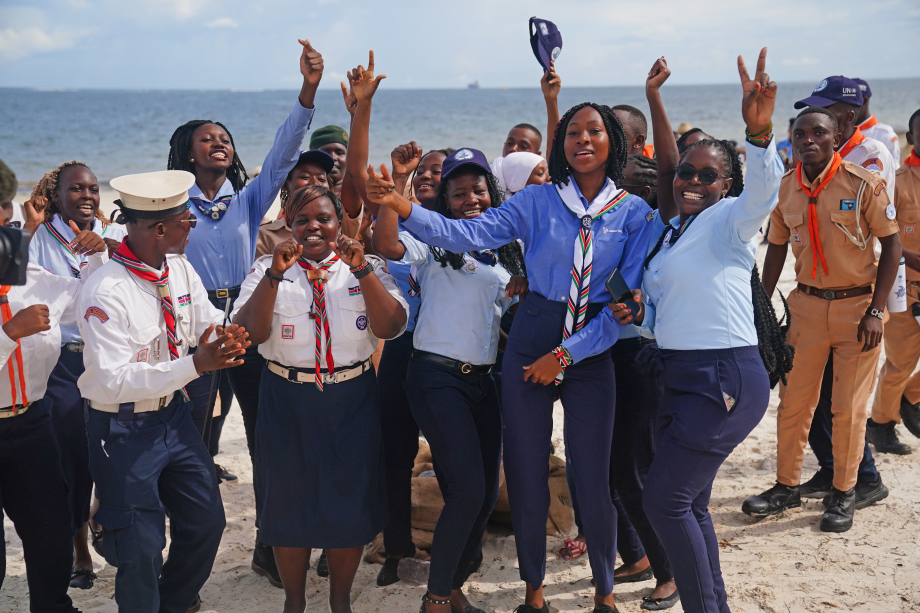
At Kuruwitu Conservation Area, The King learnt more about the work of the local coastal community in marine conservation, including their methods to restore coral.
The Kuruwitu Community Welfare Association (KCWA) works to protect the area from overfishing, climate change, and uncontrolled fish and coral collection, while supporting the livelihoods of local communities.
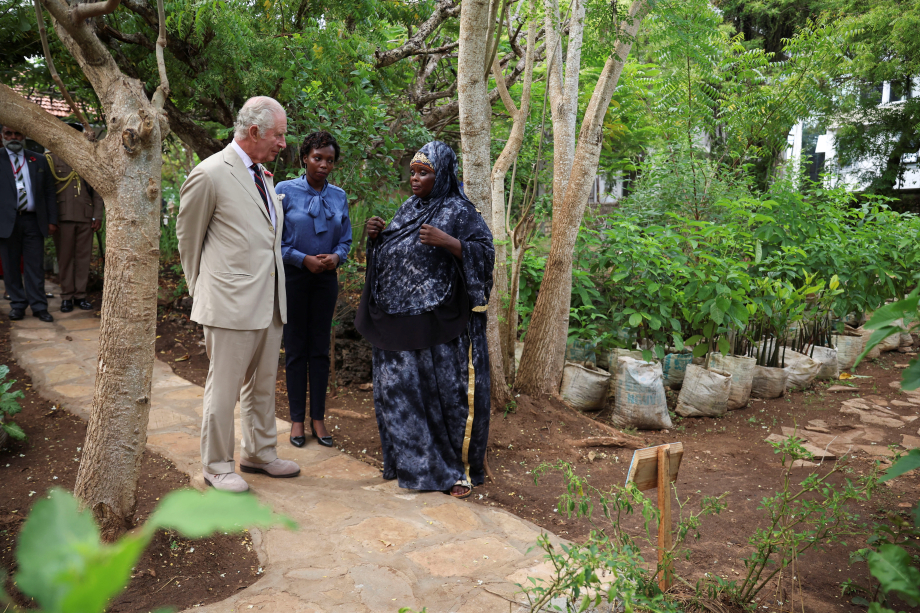
The KCWA demonstrated to His Majesty the process of coral gardening; the production of artificial coral restoration structures, and coral ‘plugs’ made of concrete and coral fragments.
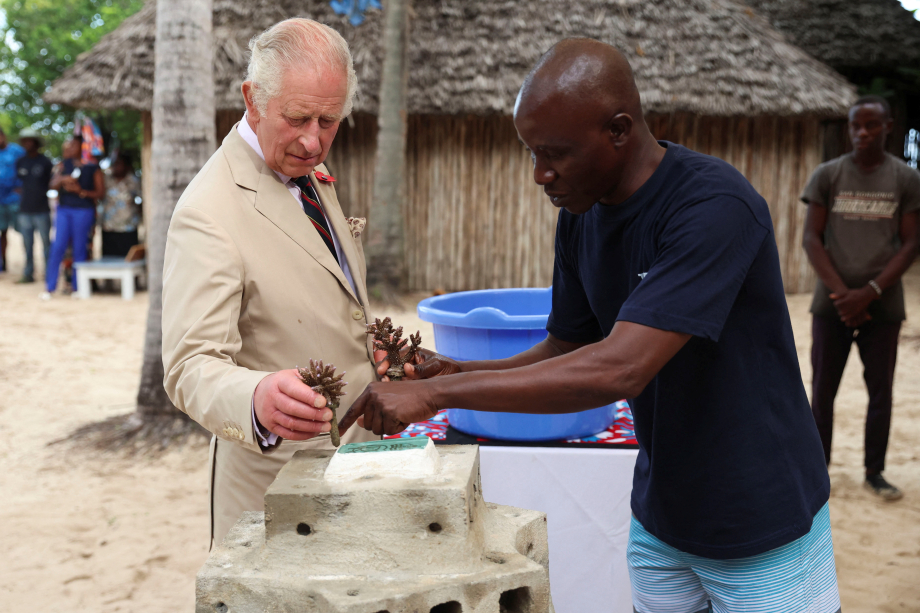
Alongside local community Elders on the shore of the beach, The King watched boats take the newly restored coral nursery out to sea.
Day 4: Mombasa
On Their Majesties' final day in Kenya, The King joined faith leaders and the Coast Interfaith Council of Clerics at Mombasa Memorial Cathedral for a discussion on the role of interfaith dialogue in promoting peace, security and development.
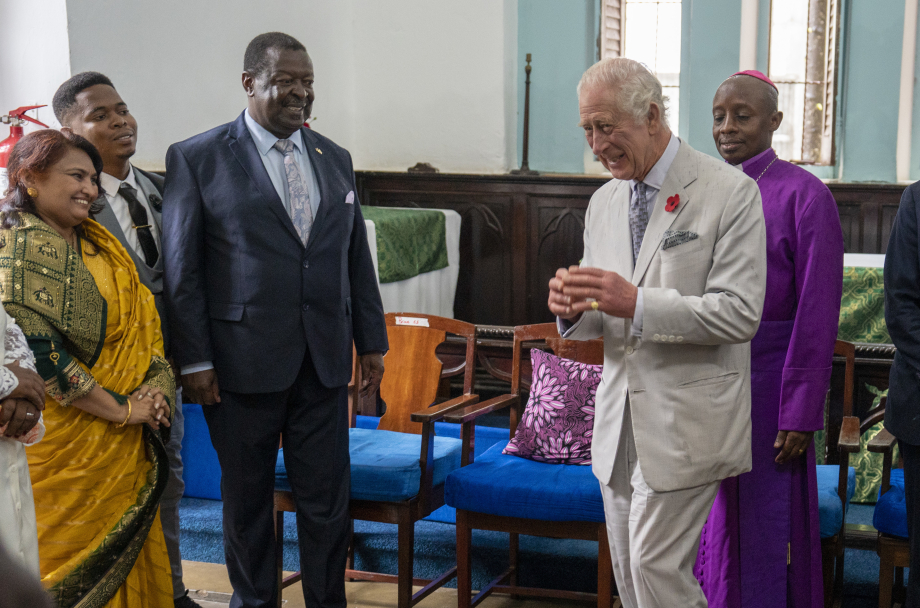
The Coast Interfaith Council of Clerics is an organisation that has been working in the coastal region of Kenya for over fifteen years to promote peace, security and development. It has eight member organisations representing the Christian, Hindu, Muslim and African Traditional Faiths. Currently, it operates in six coastal counties: Mombasa, Kwale, Kilifi, Taita Taveta, Lamu and Tana River as well as Nairobi and Garissa.
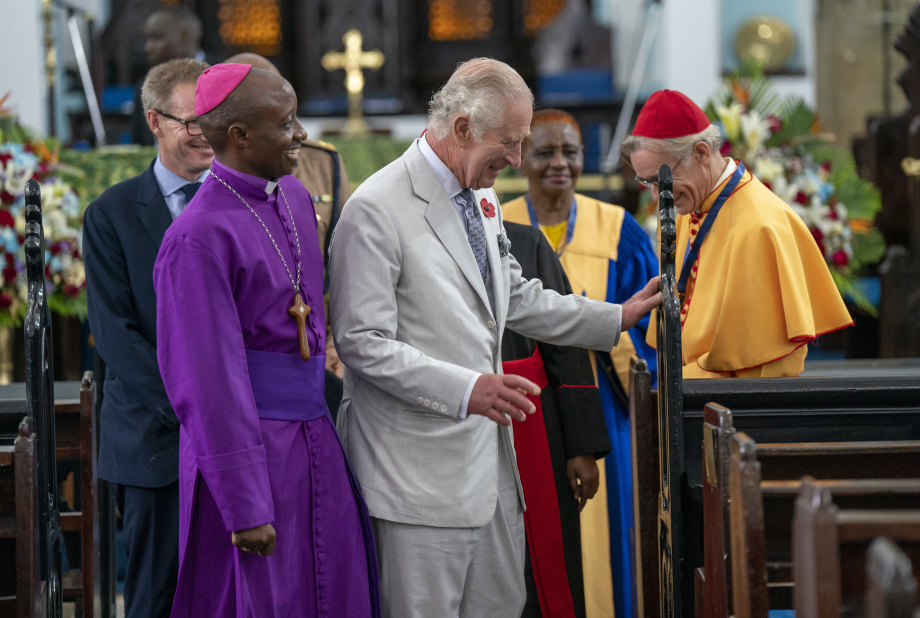
Meanwhile, The Queen met staff, volunteers and survivors of sexual and gender-based violence, to learn how the survivors are supported and to share her own insights from working in this area.
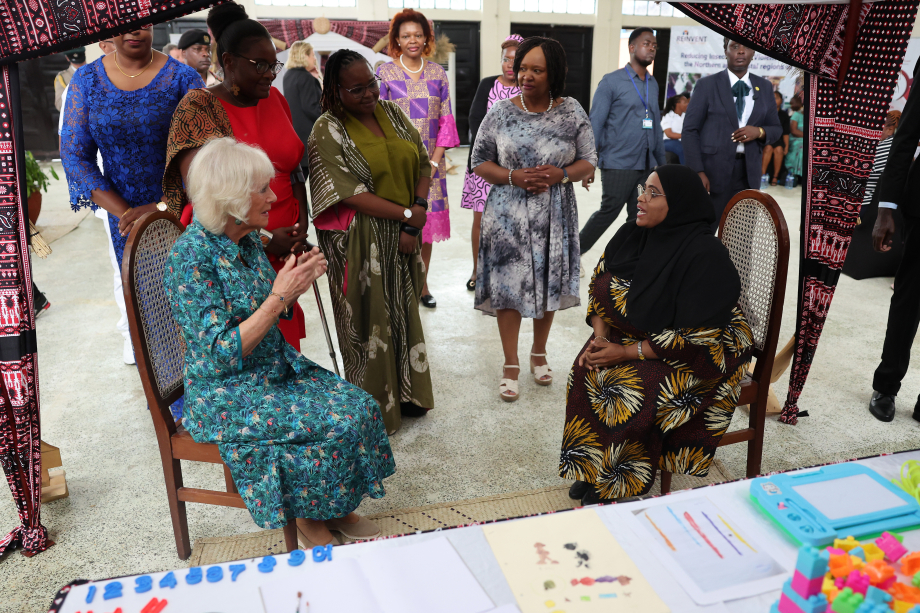
At Tononoka Social Hall, Her Majesty was shown survivor kits that volunteers provide - self care packages that include sanitary products, shawls, toys, soap, snacks and other grooming items. The kits are a similar initiative to The Queen's Wash Bag Project, established by Her Majesty when Duchess of Cornwall in 2017, which offers a gesture of comfort to survivors of sexual and gender based violence.
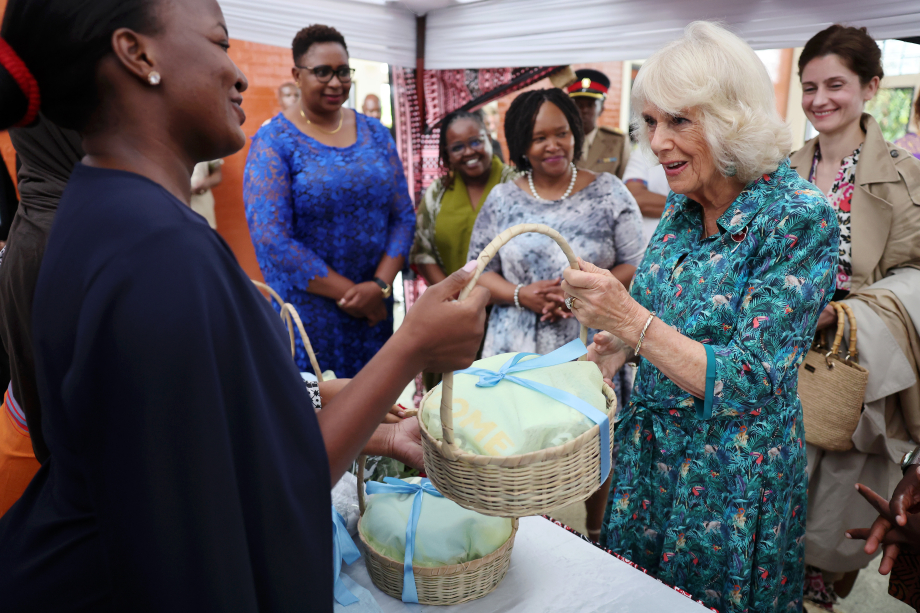
The Queen also heard how art therapy, as a form of counselling, can positively impact child survivors of domestic abuse, and how their drawings can be employed as evidence during judicial processes to bring perpetrators to account.
Her Majesty has worked to highlight organisations supporting victims of rape, sexual assault and domestic violence for over ten years, undertaking numerous visits to learn more about the issues, meet survivors, and highlight the invaluable contribution made by people and organisations working in this area.
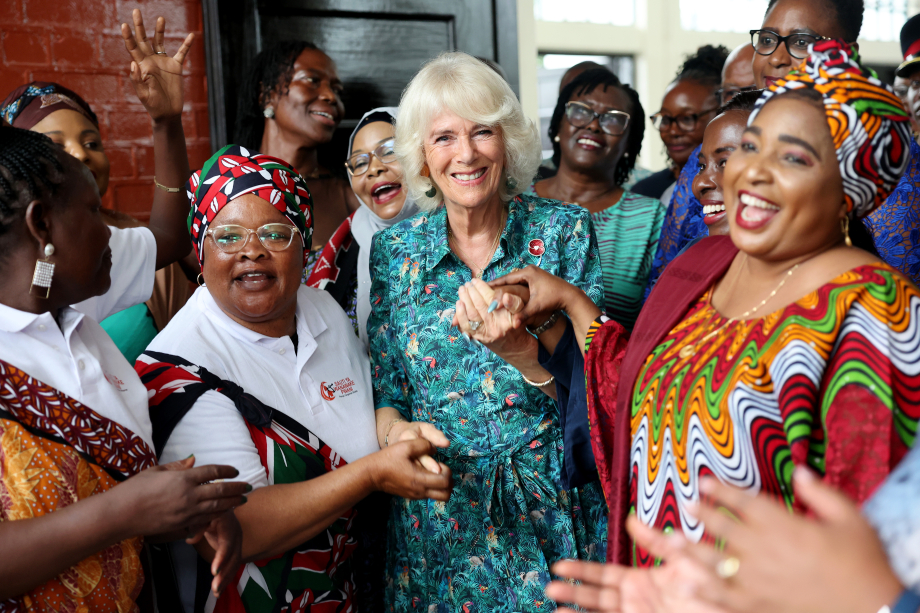
Later, The King continued to hear about interfaith dialogue at Mandhry Mosque, which is part of the Coast Interfaith Council of Clerics Trust (CICC).
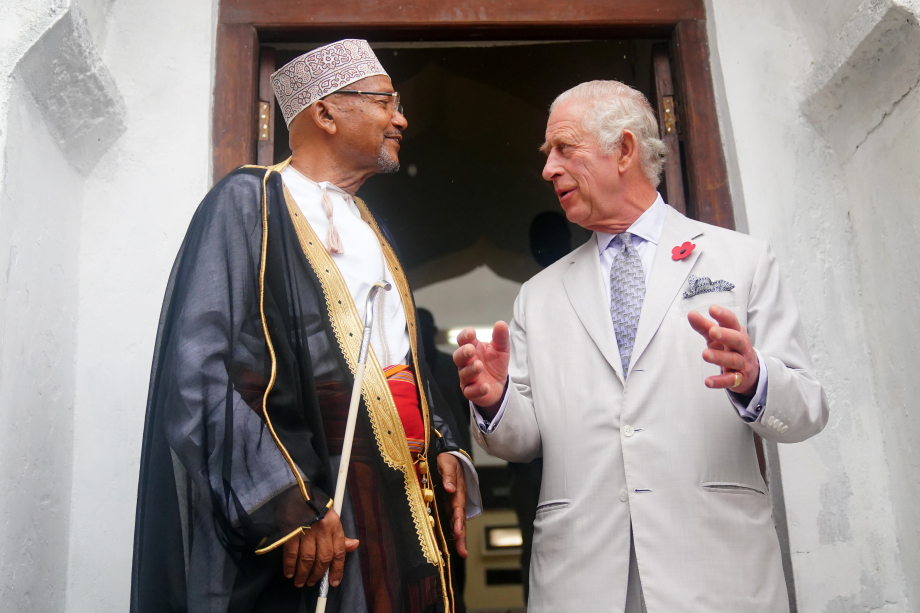
Founded in 1570, Mandhry Mosque in Mombasa Old Town is the city’s – and East Africa’s - oldest mosque. Originally serving as a worship centre for travelling merchants, the mosque brought together travellers from across the globe, as they docked from India, Somalia, China and further afield to trade at the Old Port. The Mosque contributes to CICC activities to work towards peaceful coexistence, dialogue processes and development.
As their last stop in Kenya, The King and Queen jointly visited Fort Jesus, the UNESCO World Heritage Site, in Mombasa Old Town. Arriving by electric tuk-tuk, Their Majesties saw products being sold by young creative entrepreneurs, including paintings, bags made from recycled materials, and clothes.
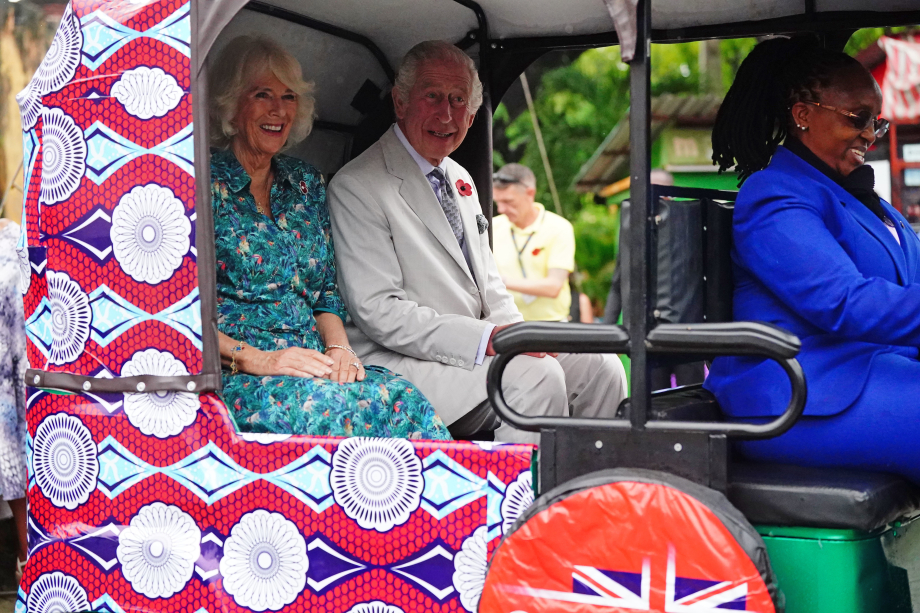
In the Fort's Chapel ruins, The King and Queen joined a Mijikenda ceremonial dance by Jukwaa Arts, a Mombasa-based theatre company which, through visual and performing visual arts, address social issues in the community.
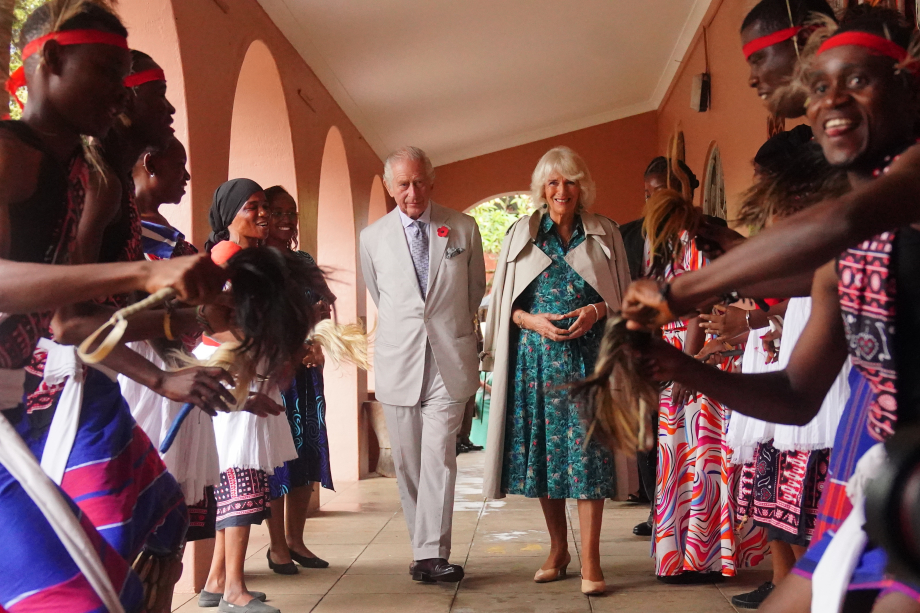
With the support of the British Council, the company is implementing Chimidzi Midzi (Home Matters), a project which will focus on Mijikenda rituals and ceremonies, to highlight the importance of traditional culture to younger generations, as they become its future custodians.
Related content
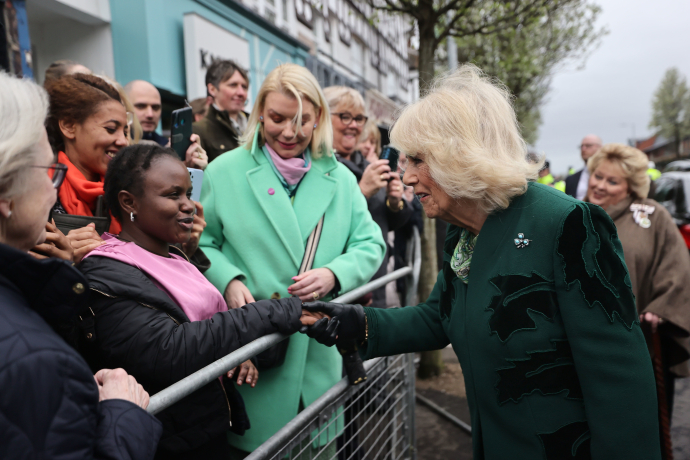
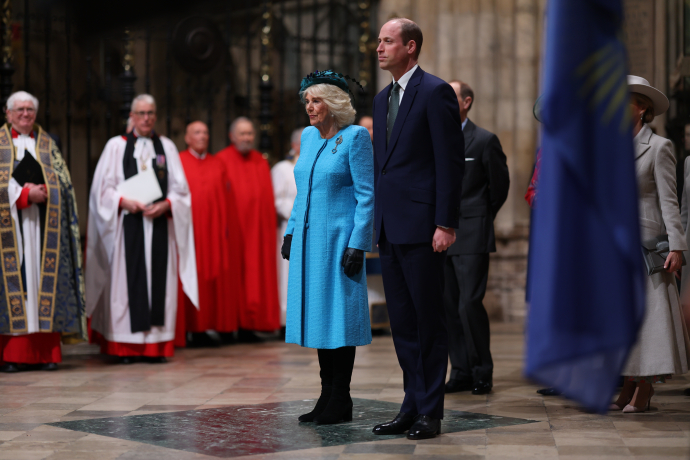
The King's Commonwealth Day Message 2024
The Commonwealth family is strongest when we are connected, through friendship.
A speech by His Majesty The King at the opening of COP28, Dubai, U.A.E
Change will come by working together and making it easier to embrace decisions that will sustain our world, rather than carry on as though there are no limits – or as though...
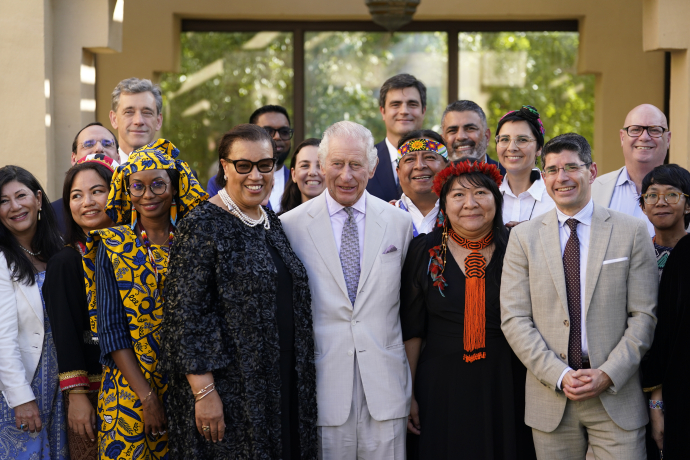
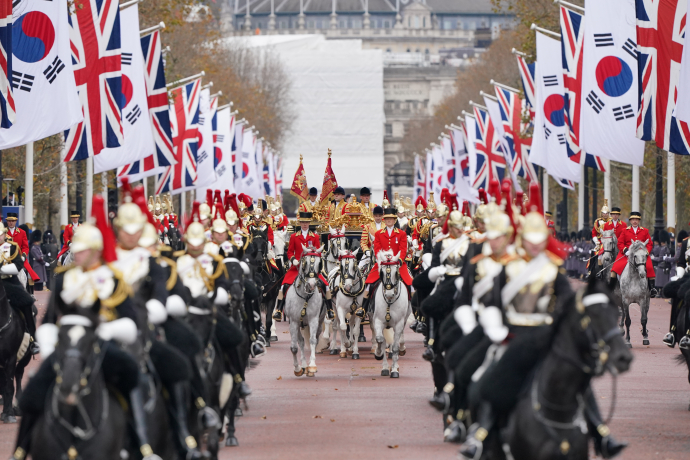
Further information about the State Visit of the President of the Republic of Korea
Remarks by His Majesty The King at the United Nations Office Nairobi, Kenya
As we look ahead to COP twenty-eight in another months time, we must remember what President Ruto said at the Africa Climate Summit – “we go far when we go together”.
A Speech by His Majesty The King at the State Banquet, Kenya
We both take considerable pride in renewing the ties between the United Kingdom and Kenya, a country that has long held such special meaning for my family.
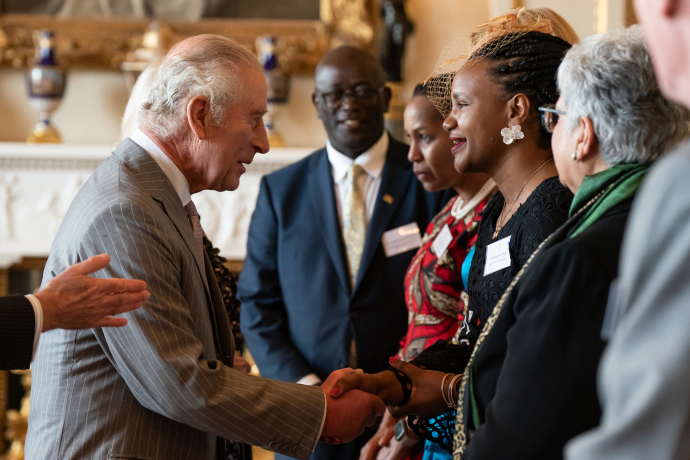
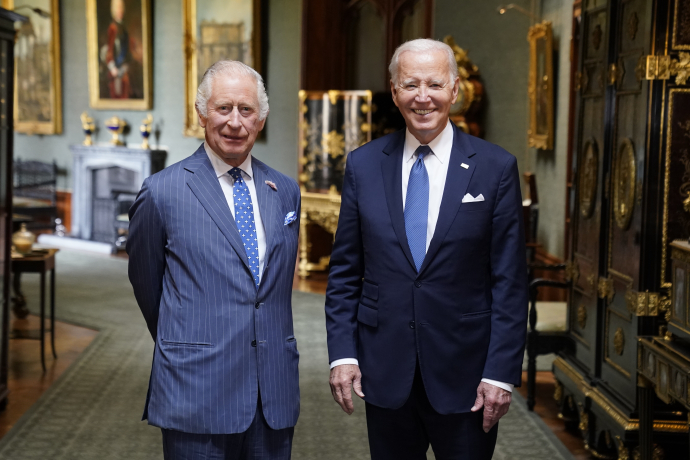

The King and The Queen Consort will undertake State Visits to France and Germany
Remarks by a Buckingham Palace spokesperson on the upcoming State Visits to France and Germany

The King and Diplomacy
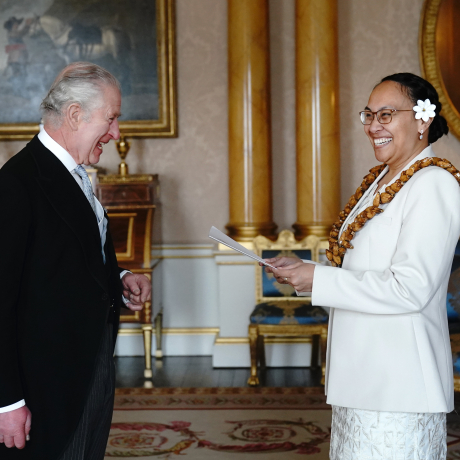
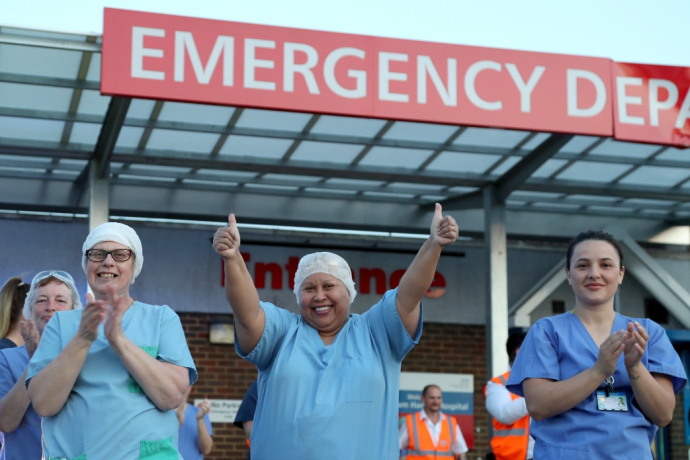
A speech by The Duchess of Cornwall to celebrate The Queen's Commonwealth Essay Competition 2019
Ladies and Gentlemen, It’s a huge pleasure to welcome you to Buckingham Palace today. Queen Victoria, my husband’s great-great-great-grandmother, was the first British...
A speech by The Prince of Wales at the Accra International Convention Centre, Accra, Ghana
It is clear to me that the Commonwealth remains as vital today, as it has ever been. It brings us together, building bridges between our governments and our people
The Prince of Wales and The Duchess Cornwall tour of Ghana

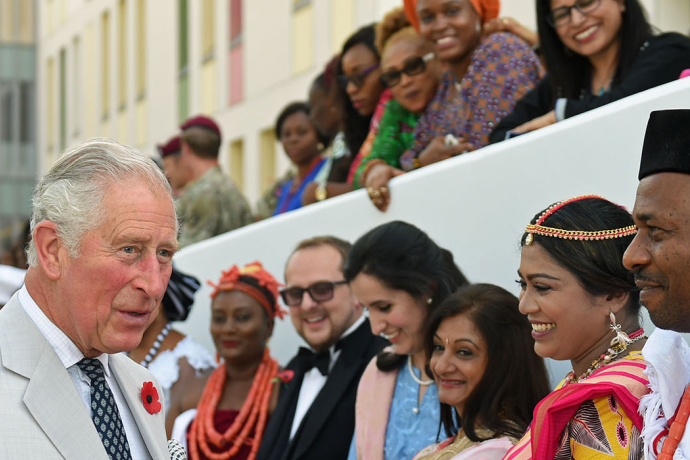
The Netherlands State Visit 2018

The Commonwealth Heads of Government Meeting 2018


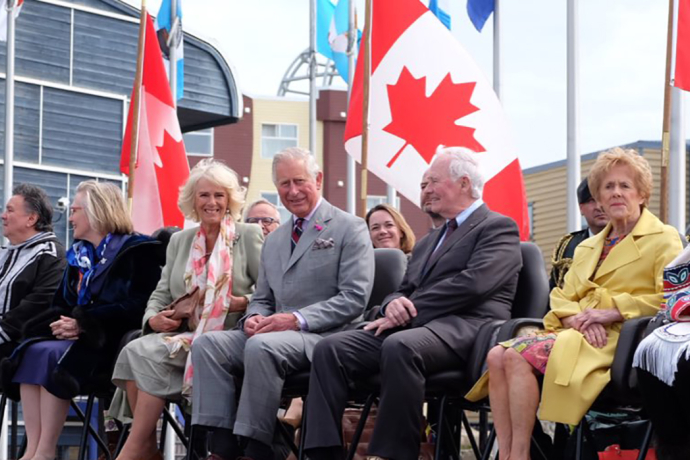




The Commonwealth
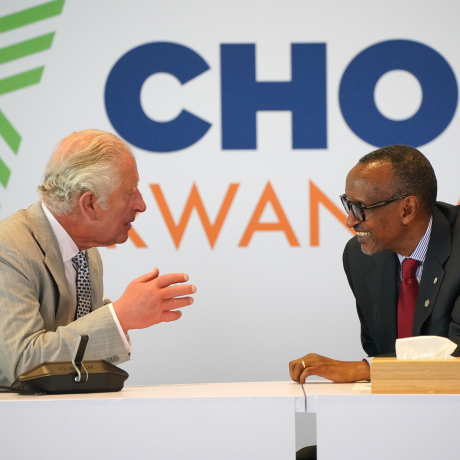
State Visit, President Luiz Inácio Lula da Silva of Brazil, 7 March 2006
I have vivid and happy memories of my visit to Brazil with Prince Philip in 1968, especially the warmth and hospitality of the Brazilian people.



